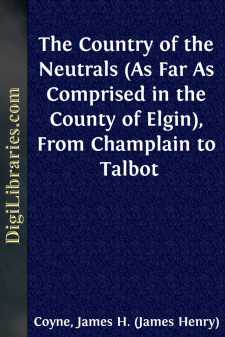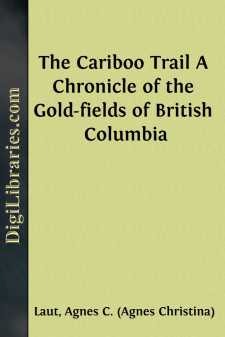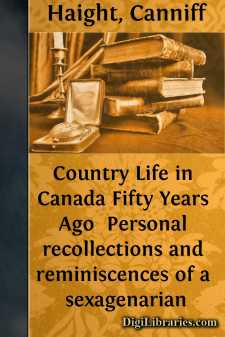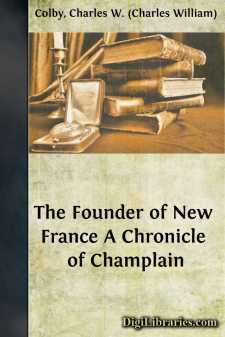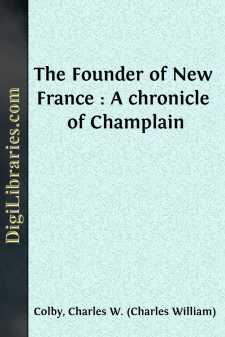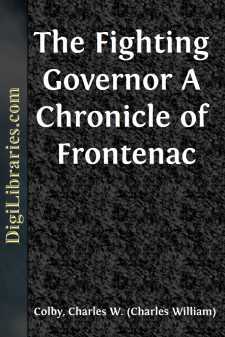History
- Africa 30
- Americas (North Central South West Indies) 50
- Ancient 68
- Asia 58
- Australia & New Zealand 8
- Canada
- Caribbean & West Indies 1
- Civilization 20
- Eastern Europe 12
- Europe 310
- Expeditions & Discoveries 60
- General 77
- Historical Geography 1
- Jewish 9
- Latin America 3
- Medieval 8
- Middle East 13
- Military 248
- Revolutionary 8
- Study & Teaching 5
- United States 353
- Western Europe 56
- World 13
Canada Books
Sort by:
by:
John Fretwell
"To be taken into the American Union is to be adopted into a partnership. To belong as a Crown Colony to the British Empire, as things stand, is no partnership at all. "It is to belong to a power which sacrifices, as it has always sacrificed, the interest of its dependencies to its own. The blood runs freely through every vein and artery of the American body corporate. Every single citizen...
more...
In that part of the township of Southwold included in the peninsula between Talbot Creek and the most westerly bend of Kettle Creek there were until a relatively recent date several Indian earthworks, which were well-known to the pioneers of the Talbot Settlement. What the tooth of time had spared for more than two centuries yielded however to the settler's plough and harrow, and but one or two of...
more...
by:
Peter Fisher
Having at different times collected what information I could obtain relating to the Province of New-Brunswick, I intended whenever I had a sufficient fund of correct materials, to publish them in such a shape as to diffuse a general knowledge of the Country, its productions, sources of wealth, &c. For this reason I had kept the different Counties, as well as the several subjects of which I intended...
more...
THE 'ARGONAUTS' Early in 1849 the sleepy quiet of Victoria, Vancouver Island, was disturbed by the arrival of straggling groups of ragged nondescript wanderers, who were neither trappers nor settlers. They carried blanket packs on their backs and leather bags belted securely round the waist close to their pistols. They did not wear moccasins after the fashion of trappers, but heavy,...
more...
by:
Canniff Haight
When a man poses before the world—even the Canadian world—in the role of an author, he is expected to step up to the footlights, and explain his purpose in presenting himself before the public in that capacity. The thoughts of the world are sown broadcast, very much as the seed falls from the sweep of the husbandman's hand. It drops here and there, in good ground and in stony places. Its...
more...
by:
Francis Parkman
INTRODUCTION. The springs of American civilization, unlike those of the elder world, lie revealed in the clear light of History. In appearance they are feeble; in reality, copious and full of force. Acting at the sources of life, instruments otherwise weak become mighty for good and evil, and men, lost elsewhere in the crowd, stand forth as agents of Destiny. In their toils, their sufferings, their...
more...
CHAPTER I CHAMPLAIN'S EARLY YEARS Were there a Who's Who in History its chronicle of Champlain's life and deeds would run as follows: Champlain, Samuel de. Explorer, geographer, and colonizer. Born in 1567 at Brouage, a village on the Bay of Biscay. Belonged by parentage to the lesser gentry of Saintonge. In boyhood became imbued with a love of the sea, but also served as a soldier in...
more...
by:
Francis Parkman
PREFACE. The discovery of the "Great West," or the valleys of the Mississippi and the Lakes, is a portion of our history hitherto very obscure. Those magnificent regions were revealed to the world through a series of daring enterprises, of which the motives and even the incidents have been but partially and superficially known. The chief actor in them wrote much, but printed nothing; and the...
more...
CHAPTER I. CHAMPLAIN'S EARLY YEARS Were there a 'Who's Who in History' its chronicle of Champlain's life and deeds would run as follows: Champlain, Samuel de. Explorer, geographer, and colonizer. Born in 1567 at Brouage, a village on the Bay of Biscay. Belonged by parentage to the lesser gentry of Saintonge. In boyhood became imbued with a love of the sea, but also served as a...
more...
CHAPTER I CANADA IN 1672 The Canada to which Frontenac came in 1672 was no longer the infant colony it had been when Richelieu founded the Company of One Hundred Associates. Through the efforts of Louis XIV and Colbert it had assumed the form of an organized province.[] Though its inhabitants numbered less than seven thousand, the institutions under which they lived could not have been more elaborate...
more...



